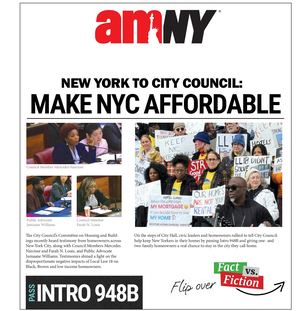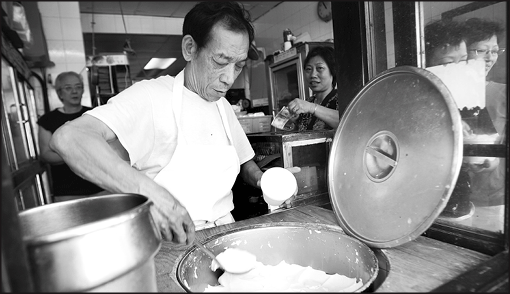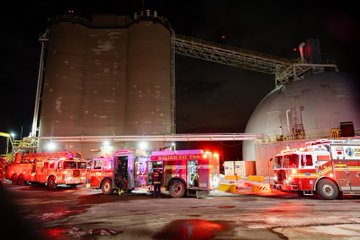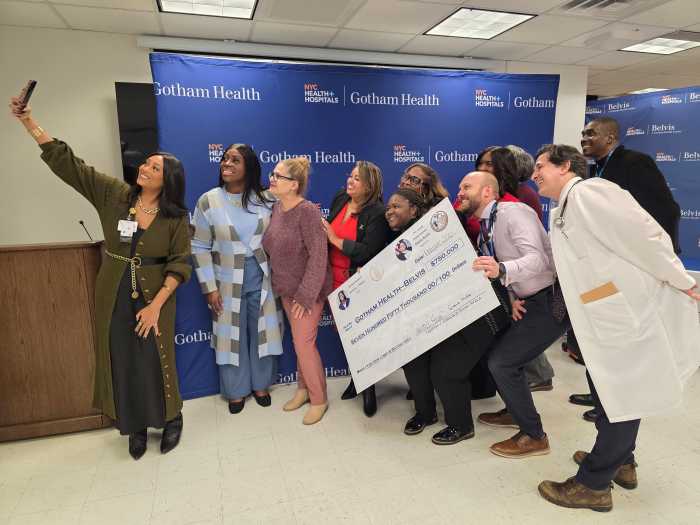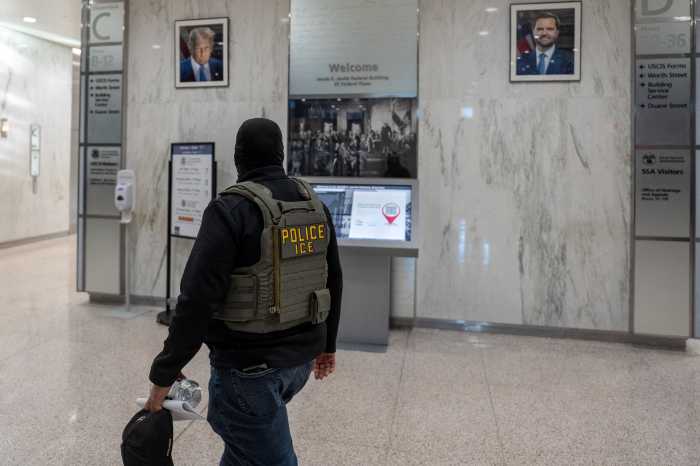By James S. Woodman
Volume 21, Number 8 | THE NEWSPAPER OF LOWER MANHATTAN | July 4 – July 10, 2008
The Eng family has just celebrated Fong Inn Too bakery’s 75th anniversary on Mott St. Below are the owners: Bingsun Eng, third from the left, whose father opened the store, and his sons, David, left, Joe and Kevin.
Making tofu not quite the old fashioned way 75 years later
Because Chinese people were barred from immigrating to America in first half of the 20th century, Bingsun Eng had to smuggle himself through Cuba before arriving in New York in 1933 to open his Chinese bakery, Fong Inn Too, on Mott St. Last weekend, three of Eng’s grandsons, all of whom run the bakery he founded, celebrated the store’s 75th year with little fanfare,
In an age when multinational chain stores and scientific management have become the norm, the Eng brothers — Kevin, David, and Joe — do not hide the gratification they derive from their mom-and-pop store’s survival. “I have to admit, we have a lot of pride in what our grandfather did,” David Eng said. “Anyone who has been in Chinatown for a length of time will know our store.”
Eng sees the homegrown nature of the store as an asset that helps it compete in Chinatown. “Corporately run businesses get too impersonal, if you ask me,” Eng said. “I think one of the reasons we have lasted so long is because of the pride and joy that we put into our products.”
They believe the bakery is the oldest bakery of its kind in the country since they know of no older one in large Chinatowns. The bakery specializes in tofu and Chinese rice cakes, whose high quality the Eng family claims to hold a monopoly on.
The intimacy with which the store operates has also helped to establish it as an institution of sorts in the area. “We really feel as part of the community. Us and the community work hand and hand, we feed off of each other.”
“Our products are geared toward Chinese tradition, mostly,” David Eng said.
Kevin estimated that no more than three percent of their clientele speak English when in the bakery; most speak local southern Chinese dialects.
When the Eng brothers worked for their father, who took over in the 1950s, turning a barrel of soybeans into tofu was a dreadfully taxing endeavor. They would boil the soybeans in a bulky vat under a gas burner before pouring them in a large cheesecloth bag that they used bamboo sticks to compress so as to drain the tofu. “Back then it took us 12 hours to process 300 pounds of soybeans,” Eng said.
Times have indeed changed. The Engs now have a tofu factory on Division St. where they cook their tofu in a more modern steam baker. “We do ten times the amount in a day now than when we were young,” Eng said.
The Engs buy their soybeans from an organic farm outside Princeton, New Jersey and, according to David, use no preservatives in their products.
David Eng, who usually works at the Division St. location, said that some days he supplies over 150 independent retail trucks with tofu. He describes his main job as “supplying people who supply Chinese restaurants” all around the Tri-state area.
In spite of the store’s success, Eng thinks that its survival might be a result of his father’s prescient decision to buy the Mott St. space in 1967. Since then, rents have gone up in Chinatown to a level have proved fatal for many small businesses. Gesturing across the street to his friend’s bubble tea store, Eng said, “I bet the rent there is $12,000 a month there. How many bubble teas do you have to sell to pay that?”
Kevin Eng said that, with the booming tourism industry, more tourists have been wandering in. “tourists will sometimes walk in and, because we can speak English, we get them to try a taste [of our products]. They then turn around and say, ‘hey that’s better than what I can get in California!’”
